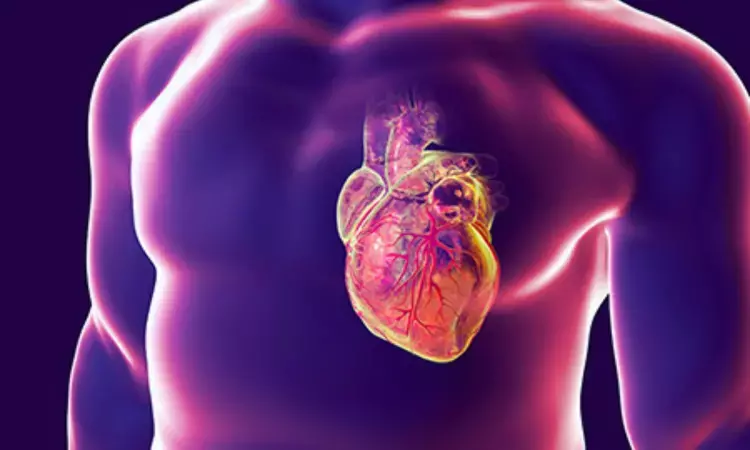- Home
- Medical news & Guidelines
- Anesthesiology
- Cardiology and CTVS
- Critical Care
- Dentistry
- Dermatology
- Diabetes and Endocrinology
- ENT
- Gastroenterology
- Medicine
- Nephrology
- Neurology
- Obstretics-Gynaecology
- Oncology
- Ophthalmology
- Orthopaedics
- Pediatrics-Neonatology
- Psychiatry
- Pulmonology
- Radiology
- Surgery
- Urology
- Laboratory Medicine
- Diet
- Nursing
- Paramedical
- Physiotherapy
- Health news
- Fact Check
- Bone Health Fact Check
- Brain Health Fact Check
- Cancer Related Fact Check
- Child Care Fact Check
- Dental and oral health fact check
- Diabetes and metabolic health fact check
- Diet and Nutrition Fact Check
- Eye and ENT Care Fact Check
- Fitness fact check
- Gut health fact check
- Heart health fact check
- Kidney health fact check
- Medical education fact check
- Men's health fact check
- Respiratory fact check
- Skin and hair care fact check
- Vaccine and Immunization fact check
- Women's health fact check
- AYUSH
- State News
- Andaman and Nicobar Islands
- Andhra Pradesh
- Arunachal Pradesh
- Assam
- Bihar
- Chandigarh
- Chattisgarh
- Dadra and Nagar Haveli
- Daman and Diu
- Delhi
- Goa
- Gujarat
- Haryana
- Himachal Pradesh
- Jammu & Kashmir
- Jharkhand
- Karnataka
- Kerala
- Ladakh
- Lakshadweep
- Madhya Pradesh
- Maharashtra
- Manipur
- Meghalaya
- Mizoram
- Nagaland
- Odisha
- Puducherry
- Punjab
- Rajasthan
- Sikkim
- Tamil Nadu
- Telangana
- Tripura
- Uttar Pradesh
- Uttrakhand
- West Bengal
- Medical Education
- Industry
Ventricular Arrhythmias in Sarcoidosis Linked to Triple Mortality Risk and Higher Device Implantation Rates: Study

USA: A large-scale study published in Expert Review of Cardiovascular Therapy has revealed that ventricular arrhythmias significantly increase mortality and device implantation rates in patients with sarcoidosis.
"In a study of 570,807 sarcoidosis patients, ventricular tachycardia and fibrillation nearly tripled mortality risk (aOR 2.98) and sharply increased the need for defibrillators (aOR 17.69) and pacemakers (aOR 3.41), though it did not affect 30-day readmissions. Early detection is key to improving outcomes," the researchers reported.
The research, conducted by Sri Nuvvula and colleagues from the Department of Cardiovascular Medicine at the University of Massachusetts Medical School, analysed outcomes using the Nationwide Readmission Database to understand the impact of ventricular tachycardia and fibrillation (VTVF) in this patient population.
The key findings were as follows:
- The analysis evaluated 570,807 adult sarcoidosis patients admitted between January 2011 and December 2018.
- Among these patients, 15,459 individuals (2.71%) developed ventricular tachycardia and fibrillation (VTVF) during hospitalization.
- Patients with VTVF had nearly three times higher in-hospital mortality risk compared to those without arrhythmias (aOR 2.98).
- VTVF was strongly associated with the need for an automatic implantable cardioverter-defibrillator (AICD) during hospitalization (aOR 17.69).
- The requirement for permanent pacemaker placement was also significantly higher in patients with VTVF (aOR 3.41).
- Despite increased mortality and device implantation rates, VTVF did not impact 30-day all-cause readmissions.
- Multivariable-adjusted Cox regression showed no significant difference in short-term hospital readmission between patients with and without VTVF (aHR 0.94).
According to the authors, these findings emphasize the critical need for early detection and aggressive monitoring of ventricular arrhythmias in sarcoidosis patients. Timely identification and management of VTVF could help reduce mortality and prevent severe cardiac complications.
Sarcoidosis, an inflammatory disease that can affect multiple organs, including the heart, is known to predispose patients to arrhythmias. The study’s large, nationally representative dataset provides robust evidence linking VTVF with adverse outcomes, reinforcing the importance of integrating arrhythmia surveillance into the management of sarcoidosis patients at risk.
The researchers recommend increased clinical vigilance and consideration of prophylactic strategies in high-risk individuals to mitigate the burden of VTVF. Further studies are needed to explore optimal monitoring approaches and interventions that can improve survival and reduce complications in this population.
"The study emphasizes that ventricular arrhythmias are a major prognostic factor in sarcoidosis, associated with significantly higher mortality and device implantation rates. Proactive arrhythmia detection and targeted management may play a vital role in improving outcomes for these patients," the authors concluded.
Reference:
Nuvvula S, Kakouros N, Alqalyoobi S, Stokken G, Mir T, Qureshi WT. Impact of ventricular arrhythmia in patients with sarcoidosis: an analysis of the national readmission database. Expert Rev Cardiovasc Ther. 2025 Jul 29:1-7. doi: 10.1080/14779072.2025.2540405. Epub ahead of print. PMID: 40711835.
Dr Kamal Kant Kohli-MBBS, DTCD- a chest specialist with more than 30 years of practice and a flair for writing clinical articles, Dr Kamal Kant Kohli joined Medical Dialogues as a Chief Editor of Medical News. Besides writing articles, as an editor, he proofreads and verifies all the medical content published on Medical Dialogues including those coming from journals, studies,medical conferences,guidelines etc. Email: drkohli@medicaldialogues.in. Contact no. 011-43720751


